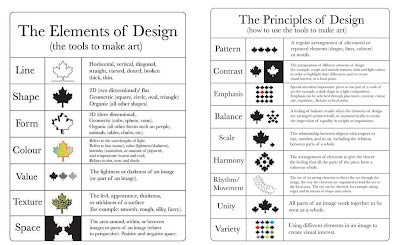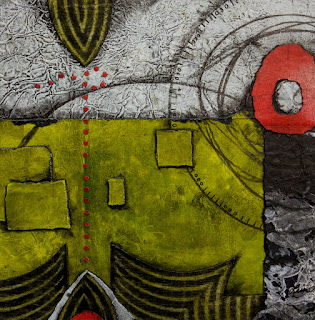Finding our own unique recipe for joy increase you clarity
I woke up to I've got to get going on the recording my artwork that is in house now and put it in my excel spread sheet I've set up....a little shower, some coffee and rumblings and ramblings on the paper of my morning journal... My stone this morning is "delight!" Ok I tell myself...and go on to read more on Chapter three in Living Wabi Sabi The True Beauty of your Life.
Wabi Sabi helps us become more joyful....are the first words I read. (connection I feel with my stone and becoming more joyful)
Taro's Grandmother Obaa-san, "Everyone wants to be joyful, yet everyone faces some worry or another. We all encounter loss, challenge, hardship even disaster in the course of our lives. Whether our difficulties are internal or external, minor major, changeable or unchangeable, problems are an inherent part of life. We can use these problems, these "imperfections" to enrich our lives, to help us determine priorities and goals, and to become the person we want to be. For most people, this is a difficult attitude adjustment."
Appreciation-emotional Appreciation, artistic appreciation, appreciation on every level -is and important part of living Wabi Sabi...(could I say a attitude of gratitude)
Appreciation manifests joy. We don't need to live by some impossible standard to have a joyful contributive, "enlightened" existence. We don't need to become someone else or wait until things are "perfect" to appreciate the whole of our lives.
People often fantasize that lasting joy will come to them as a result of perfection," Grandmother continued. "Most people dream of the perfect mate, the perfect job, the perfect home, and so on. But to wish for perfection is to deny reality. It actually invites the opposite of what we seek. Perfection exists only in the imagination. As long as we equate joy with perfection in even a small way, we will never know contentment.
The Ancient Wabi Sabi masters understood this well, They knew that happiness does not mean "absence of problems." There has never been, nor will there ever be a life free from problems. since there is no such thing as a perfect life, Wabi Sabi teaches us a way of looking at life that accepts imperfections, makes peace with the difficulties and mishaps and strives to use them for the ultimate enrichment."
"Channel your energies into more productive enjoyable endeavors; star valuing the whole of your life, here and now, just as you are." Obaa-san (Taro Gold's Grandmother)
"There must be more to life than having everything" -Maurice Sendak
When we cherish ourselves as we are, we accept other people and things as they are. We come to show more compassion, patience, and thoughtfulness. We bring more humor and lightness to any situation. When we broaden our attitude to embrace everything as perfectly imperfect, we begin to see more clearly what's truly important to us, and we increase our joy of living.
Trapped in a so-called perfect life- money, fame, status, and so on-do not make you happy. You make you happy.
At the end of the day, it doesn't really matter what you have or don't have, because joy comes from within-it is untouched by outside circumstances.
We must each find our own unique recipe for a joyful life. There exists no cookie-cutter pattern to follow, not standard mix of ingredients, regardless of who or where we are. Life isn't this way or that. Life simply is.
Children know this truth until someone teaches them differently. Children know that an empty canvas is the best kind, because you can paint whatever you want on it.
Give a child nothing more than sand and the will build a castle. That's the magic of life to a child. There is endless potential everywhere.
Life is always that way. It can be that way for us, too- but sometime we forget.
Children find no shame in being real. They thrive on the Wabi Sabi-ness of themselves and everything around them and often wear it on there sleeves for the whole world to see. Left to their own devises, children are not afraid of being whoever they truly are-at least not until someone teaches them otherwise.
At some point, we are taught that these normal aspects of our lives are faults-shameful, mistaken, less than acceptable, out of line, not quite perfect. Regrettably, many of us are taught early on to be uncomfortable with the differences in our lives, to make sure we always color inside the lines that other people have drawn. Few of us are taught to use imperfections for our betterment, to seek the hidden lesson that every difficulty holds, to be proud of our uniqueness.
Contentment begins with acceptance. We must look our idiosyncrasies and imperfections squarely in the face to begin their transformation into empowerment. With a dose of patience and humor, we can find surprising ne ways of accentuating our strengths by exploring and understanding our weaknesses. Ironically, our worst imperfections and setbacks often lead us to our most spectacular developments, talents, and personal achievements.
"Depending on how we take them, failures, imperfections, and adversity can be great sources of motivation and opportunity, Obaa-san said, "sometimes we feel deep frustration, anger or sadness dut to our struggles. This is natural. Rather than escape or reject unpleasant circustances, however we should follow our feelings to the true origin of our suffering so that we can transform it into a source of benefit and triumph."
"God grant me the serenity to accept the things I cannot change, the courage to change the things I can, and the wisdom to know the difference- Reinhould Niebuhr
Every hurt also holds hidden gifts- Obaa-san
Remember this- very little is needed to make a joyful life. It is all in your way of thinking-Marcus Aurelius.
Ok...I know it's getting lengthy here but I've got share this...
When we are upset, it's easy to blame others. The true cause of our feelings, however is within us. for example, imagine yourself a glass of water. Now, imagine past negative experiences as sediment at the bottom of your glass. Next think of an unpleasant situation as a spoon. when the spoon stirs, the sediment clouds you water. It may appear that the spoon caused the water to cloud-but if there were not sediment, the water would remain clear. Even if we remove the spoon, our sediment still remains-lying in wait for the next spoon to appear. On the other hand, if we remove our sediment, then no matter how a spoon may stir, our water will remain clear.
"Heed these golden word whenever you feel distressed. By carrying this illumination in your heart, you can see every stormy circumstance or emotion for what it truly is-an opening for you to increase you clarity and expand your joy. This is the wisdom of imperfection."
"Experience is what we call the accumulation of our mistakes.-Yiddish Proverb
If you want your future to be different than your past, study your past.-Baruch Spinoza
Well...after reading all this I'm like Oh My Gosh...I shared the part about the glass of water with the husband and he was taken back by it and started asking what book I was reading...I'm a visual and tactile learner so I need a good visual as that to carry with me.
Off to bring my response to surface of some paper....
Wabi Sabi helps us become more joyful....are the first words I read. (connection I feel with my stone and becoming more joyful)
Taro's Grandmother Obaa-san, "Everyone wants to be joyful, yet everyone faces some worry or another. We all encounter loss, challenge, hardship even disaster in the course of our lives. Whether our difficulties are internal or external, minor major, changeable or unchangeable, problems are an inherent part of life. We can use these problems, these "imperfections" to enrich our lives, to help us determine priorities and goals, and to become the person we want to be. For most people, this is a difficult attitude adjustment."
Appreciation-emotional Appreciation, artistic appreciation, appreciation on every level -is and important part of living Wabi Sabi...(could I say a attitude of gratitude)
Appreciation manifests joy. We don't need to live by some impossible standard to have a joyful contributive, "enlightened" existence. We don't need to become someone else or wait until things are "perfect" to appreciate the whole of our lives.
People often fantasize that lasting joy will come to them as a result of perfection," Grandmother continued. "Most people dream of the perfect mate, the perfect job, the perfect home, and so on. But to wish for perfection is to deny reality. It actually invites the opposite of what we seek. Perfection exists only in the imagination. As long as we equate joy with perfection in even a small way, we will never know contentment.
The Ancient Wabi Sabi masters understood this well, They knew that happiness does not mean "absence of problems." There has never been, nor will there ever be a life free from problems. since there is no such thing as a perfect life, Wabi Sabi teaches us a way of looking at life that accepts imperfections, makes peace with the difficulties and mishaps and strives to use them for the ultimate enrichment."
"Channel your energies into more productive enjoyable endeavors; star valuing the whole of your life, here and now, just as you are." Obaa-san (Taro Gold's Grandmother)
"There must be more to life than having everything" -Maurice Sendak
When we cherish ourselves as we are, we accept other people and things as they are. We come to show more compassion, patience, and thoughtfulness. We bring more humor and lightness to any situation. When we broaden our attitude to embrace everything as perfectly imperfect, we begin to see more clearly what's truly important to us, and we increase our joy of living.
Trapped in a so-called perfect life- money, fame, status, and so on-do not make you happy. You make you happy.
At the end of the day, it doesn't really matter what you have or don't have, because joy comes from within-it is untouched by outside circumstances.
We must each find our own unique recipe for a joyful life. There exists no cookie-cutter pattern to follow, not standard mix of ingredients, regardless of who or where we are. Life isn't this way or that. Life simply is.
Children know this truth until someone teaches them differently. Children know that an empty canvas is the best kind, because you can paint whatever you want on it.
Give a child nothing more than sand and the will build a castle. That's the magic of life to a child. There is endless potential everywhere.
Life is always that way. It can be that way for us, too- but sometime we forget.
Children find no shame in being real. They thrive on the Wabi Sabi-ness of themselves and everything around them and often wear it on there sleeves for the whole world to see. Left to their own devises, children are not afraid of being whoever they truly are-at least not until someone teaches them otherwise.
At some point, we are taught that these normal aspects of our lives are faults-shameful, mistaken, less than acceptable, out of line, not quite perfect. Regrettably, many of us are taught early on to be uncomfortable with the differences in our lives, to make sure we always color inside the lines that other people have drawn. Few of us are taught to use imperfections for our betterment, to seek the hidden lesson that every difficulty holds, to be proud of our uniqueness.
Contentment begins with acceptance. We must look our idiosyncrasies and imperfections squarely in the face to begin their transformation into empowerment. With a dose of patience and humor, we can find surprising ne ways of accentuating our strengths by exploring and understanding our weaknesses. Ironically, our worst imperfections and setbacks often lead us to our most spectacular developments, talents, and personal achievements.
"Depending on how we take them, failures, imperfections, and adversity can be great sources of motivation and opportunity, Obaa-san said, "sometimes we feel deep frustration, anger or sadness dut to our struggles. This is natural. Rather than escape or reject unpleasant circustances, however we should follow our feelings to the true origin of our suffering so that we can transform it into a source of benefit and triumph."
"God grant me the serenity to accept the things I cannot change, the courage to change the things I can, and the wisdom to know the difference- Reinhould Niebuhr
Every hurt also holds hidden gifts- Obaa-san
Remember this- very little is needed to make a joyful life. It is all in your way of thinking-Marcus Aurelius.
Ok...I know it's getting lengthy here but I've got share this...
When we are upset, it's easy to blame others. The true cause of our feelings, however is within us. for example, imagine yourself a glass of water. Now, imagine past negative experiences as sediment at the bottom of your glass. Next think of an unpleasant situation as a spoon. when the spoon stirs, the sediment clouds you water. It may appear that the spoon caused the water to cloud-but if there were not sediment, the water would remain clear. Even if we remove the spoon, our sediment still remains-lying in wait for the next spoon to appear. On the other hand, if we remove our sediment, then no matter how a spoon may stir, our water will remain clear.
"Heed these golden word whenever you feel distressed. By carrying this illumination in your heart, you can see every stormy circumstance or emotion for what it truly is-an opening for you to increase you clarity and expand your joy. This is the wisdom of imperfection."
"Experience is what we call the accumulation of our mistakes.-Yiddish Proverb
If you want your future to be different than your past, study your past.-Baruch Spinoza
Well...after reading all this I'm like Oh My Gosh...I shared the part about the glass of water with the husband and he was taken back by it and started asking what book I was reading...I'm a visual and tactile learner so I need a good visual as that to carry with me.
Off to bring my response to surface of some paper....








Comments
Post a Comment
Thank you for support, interest and viewing my inner life with my outer life on this Blog. Wishing you many creative blessings and peace to you and yours,
~v~Laura